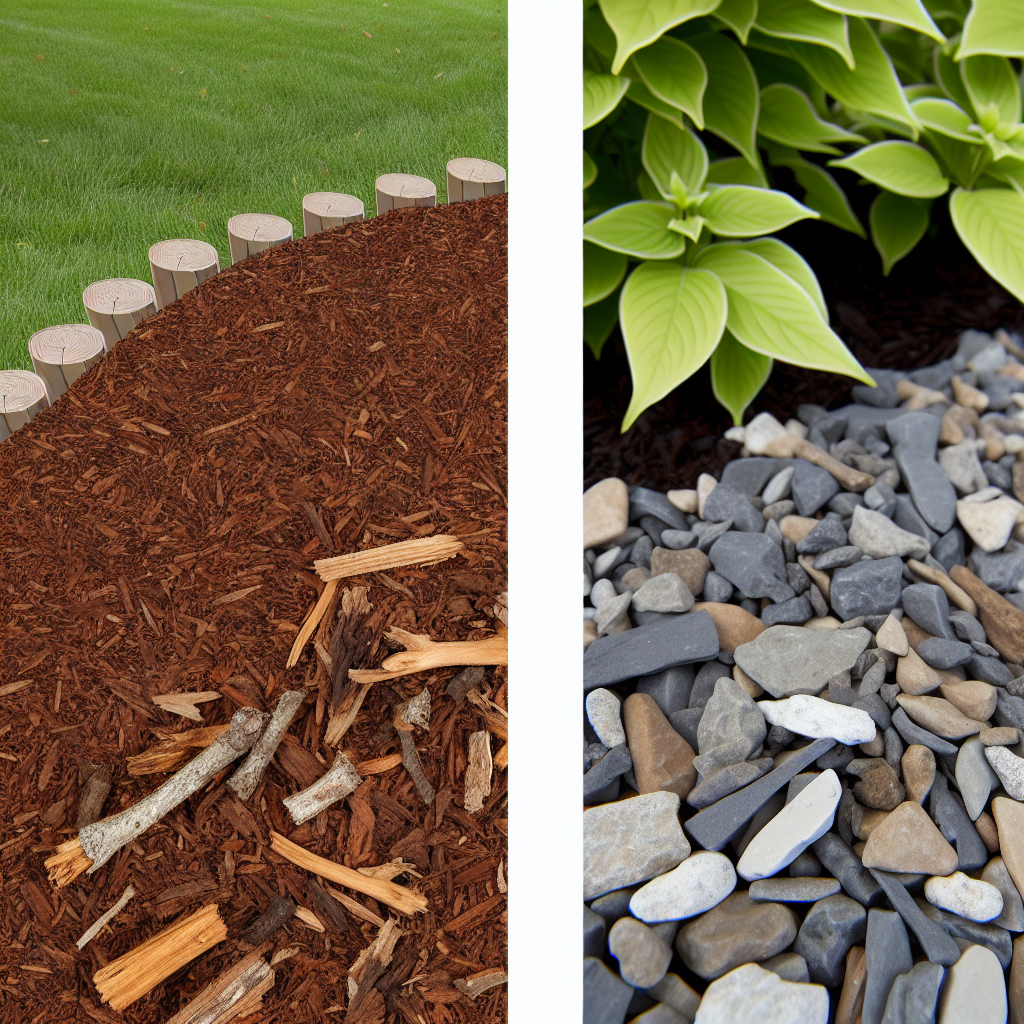
Understanding the Different Types of Mulch for Your Landscaping
Understanding the Different Types of Mulch for Your Landscaping
Mulching is a vital aspect of landscaping that is often overlooked. Not only does it add a decorative touch to your yard, but it also has practical benefits such as retaining moisture, suppressing weed growth, and protecting roots from extreme temperatures. However, with so many types of mulch available in the market, it can be overwhelming to choose the right one for your landscaping needs.
Organic Mulch: Nature's Best Option
Organic mulch is made from natural materials such as wood chips, bark, leaves, and pine needles. It's the most commonly used type of mulch because it's affordable, readily available, and easy to spread. Organic mulch breaks down over time, adding nutrients to the soil and improving its overall health. It also helps to regulate soil temperature and retain moisture, making it an excellent choice for plant growth.
Inorganic Mulch: The Low-Maintenance Option
Inorganic mulch is typically made from materials like gravel, volcanic rock, rubber, or plastic. Unlike organic mulch, it doesn't decompose and adds a permanent layer to your landscaping. Inorganic mulch is an excellent option for areas with high winds or heavy rain, as it won't wash away easily. It also doesn't attract pests and won't break down, making it a low-maintenance option.
Living Mulch: The Green Choice
Living mulch includes groundcover plants such as clover, low-growing herbs, or creeping thyme that provide similar benefits to traditional mulch. It's an environmentally friendly option as it reduces the need for chemical fertilizers, herbicides, and pesticides. Living mulch also helps to suppress weeds and regulate soil temperature while adding a pop of color to your landscape.
Straw Mulch: For Veggie Lovers
Straw mulch is made from dried straw and is a popular choice for vegetable gardens. It's affordable, easy to spread, and has excellent water retention properties. Straw mulch also helps to keep vegetables clean and reduces the risk of soil-borne diseases. However, it can be a bit messy and may attract rodents, so it's not recommended for ornamental plants or flower beds. In conclusion, the right type of mulch for your landscaping depends on your specific needs and preferences. Organic mulch is the most popular option because of its numerous benefits, but inorganic, living, and straw mulch all have their advantages as well. Whichever type you choose, remember to spread it evenly and maintain a layer of 2-3 inches for optimum results. With the right type of mulch, your landscaping will not only look beautiful but also thrive.
Serving Utah with Pride
Kirkman Construction & Excavating LLC is proud to serve the communities of Utah, including Ogden, Layton, Kaysville, Pleasant View, Eden, Morgan, West Haven, and Hooper. Our local expertise and understanding of the area’s unique requirements allow us to provide services that are tailored to meet the needs of our clients. We are dedicated to contributing to the growth and development of these communities through our high-quality construction and excavation services.

Ready to start your next construction project?
Contact Kirkman Construction today for a free consultation. Whether you need a general contractor, landscaping, demolition, or any of our other expert services, we’re here to help you bring your vision to life in Northern Utah. Call us or fill out our online form to get started!








